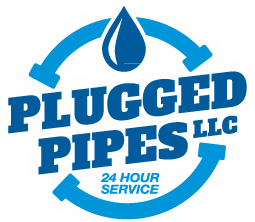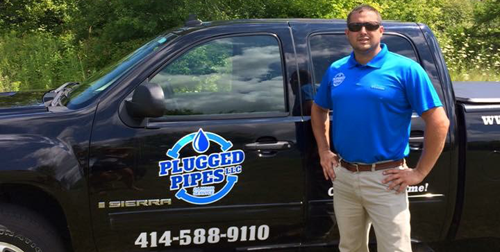Why Is My Dishwasher Not Draining? Common Causes and Solutions
Is your dishwasher not draining properly? Finding water pooling at the bottom of your dishwasher can be frustrating, especially when you’re relying on the convenience of this essential kitchen appliance. While it’s a common issue, there are several potential causes behind it. In this blog post, we’ll explore the most common reasons why your dishwasher isn’t draining and offer practical solutions to help you troubleshoot the problem.
If the issue persists and you need professional help, consider reaching out to experts like Plugged Pipes, who can handle even the most challenging drainage problems.
Common Causes of a Dishwasher Not Draining
When a dishwasher fails to drain, the issue usually boils down to a blockage or a malfunctioning part. Below are the most common reasons for drainage problems:
1. Clogged Dishwasher Filter
One of the primary reasons for water remaining in the bottom of the dishwasher is a clogged filter. Over time, food particles, grease, and debris can build up, blocking the filter and preventing water from flowing out properly.
Solution:
- Remove the filter from the bottom of the dishwasher (usually located near the spray arm).
- Clean it thoroughly by rinsing it under warm water and scrubbing away debris with a soft brush.
- Reinstall the filter and run the dishwasher again to see if the problem is resolved.
2. Blocked Drain Hose
The drain hose is responsible for carrying wastewater from your dishwasher to your garbage disposal or sink drain. If this hose becomes kinked or blocked by debris, it will prevent proper drainage.
Solution:
- Disconnect the drain hose from the dishwasher and check for any visible blockages or kinks.
- Flush out the hose using a garden hose or by gently running water through it to clear any obstructions.
- Reconnect the hose securely and test the dishwasher.
3. Faulty Garbage Disposal Connection
If your dishwasher is connected to a garbage disposal, a clog in the disposal can prevent the dishwasher from draining properly. Additionally, if you’ve recently installed a new garbage disposal, the dishwasher drain plug might not have been removed.
Solution:
- Run your garbage disposal to clear any blockages.
- If the problem persists, check to see if the dishwasher drain plug (located inside the garbage disposal inlet) has been removed. If not, remove the plug to allow proper drainage.
4. Air Gap Issues
An air gap is a small cylinder located next to your sink faucet that prevents dirty water from backflowing into the dishwasher. If this air gap becomes clogged, it can obstruct the flow of water and prevent your dishwasher from draining.
Solution:
- Unscrew the air gap cover and check for any blockages inside.
- Clear any debris with a small brush or rinse it under running water.
- Reassemble the air gap and check the dishwasher for proper drainage.
5. Malfunctioning Drain Pump
The drain pump is the component that forces water out of the dishwasher during the drain cycle. If this pump becomes faulty or clogged with debris, it won’t be able to do its job effectively.
Solution:
- Listen for any unusual sounds during the drain cycle. If the pump is making loud noises or not operating at all, it may be malfunctioning.
- In this case, the pump may need to be repaired or replaced by a professional.
How to Troubleshoot a Dishwasher That Won’t Drain
Before calling in a professional, there are a few steps you can take to troubleshoot your dishwasher’s drainage issue:
- Turn off the dishwasher and disconnect the power to avoid any electrical accidents.
- Check the filter and clean it if necessary.
- Inspect the drain hose for any kinks or clogs.
- Run your garbage disposal to ensure it isn’t clogged and affecting your dishwasher’s drainage.
- Test the air gap for blockages.
If you’ve tried all of these steps and your dishwasher still isn’t draining, it might be time to call a plumbing professional. For those in need of expert assistance, Plugged Pipes offers reliable service for clearing drains and addressing plumbing issues, including dishwasher drainage problems.
When to Call a Professional
Sometimes, the cause of a dishwasher not draining goes beyond simple fixes and requires professional intervention. If you’ve exhausted your DIY options, here are signs that it’s time to call in an expert:
- The dishwasher makes unusual noises during the drain cycle.
- You notice water backing up into your sink or garbage disposal.
- The drain pump or other components appear damaged or malfunctioning.
By contacting a professional plumbing service like Plugged Pipes, you can ensure that your dishwasher’s drainage issues are resolved efficiently and without further complications.
Preventing Future Drainage Issues
Once you’ve resolved your dishwasher drainage problem, it’s important to take steps to prevent future issues. Here are a few tips:
- Rinse dishes before loading: While modern dishwashers are designed to handle some food residue, larger pieces of food can clog the filter and drain.
- Clean the filter regularly: Make it a habit to clean the filter every few weeks to prevent debris buildup.
- Run your garbage disposal before each dishwasher cycle: This ensures that the disposal is clear of blockages that could affect drainage.
By maintaining your dishwasher and addressing minor issues early on, you can avoid more significant drainage problems down the road.
Conclusion
A dishwasher that won’t drain can be a hassle, but with some troubleshooting and regular maintenance, you can often resolve the issue on your own. However, if the problem persists, it’s best to contact a professional plumbing service like Plugged Pipes to ensure the problem is diagnosed and fixed quickly.
Keep your dishwasher running smoothly by staying on top of maintenance and repairs, and you’ll enjoy hassle-free dishwashing for years to come!

